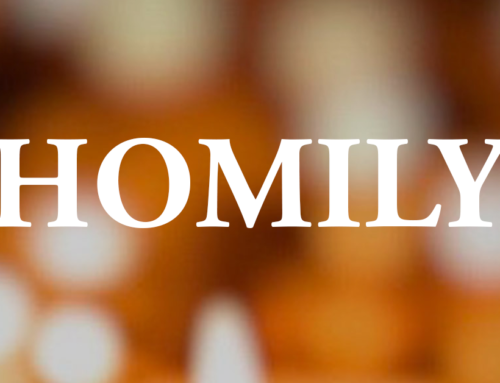“Hope that Does Not Disappoint”
“… suffering produces endurance, and endurance produces character, and character produces hope, and hope does not disappoint us.”
These are the words of Paul’s letter to the Romans, which Barbara just read so beautifully. Christianity is a religion of hope. During this time of war abroad and violence at home, this time of pestilence and division, of ferocious storms and raging fires, we might want to consider the nature of hope, of Christian hope. In such times, despair and cynicism can overtake us. By predicting the worst, cynicism purports to prepare us from disappointment.
Like all living things, our very survival is based on prediction — conscious and subconscious. We’re hard-wired to move through time and space as predictors. Walking in the woods, we might be predicting the next turn in the trail, whether the clouds signal rain, what wildlife we might encounter. From my long career in speech pathology, I know that as we listen to the spoken word, we are unconsciously predicting the next speech sound, the next word to come — just like our iPhones do now — sometimes with comical results.
Because cynicism predicts nothing good will come of much of anything, we feel ready for and thus somehow protected from dashed hopes. But it is a dark and negative space. And hopes are met or dashed regardless. We may feel smart, but we’re still disappointed.
Yet, Paul says, “and hope does not disappoint us.” So then are we, as Christians, meant to be cockeyed optimists? Surely not, for then we would fail to register the very warning signs that help us survive. We cannot face a tornado bearing down on us and blithely hope against hope that it will miss us. We must run for shelter. Just as sometimes we must shelter from news of the world so we can recharge our batteries.
Senseless cruelty abounds, dangerous divisions persist, healing often fails despite our prayers. So how is it that hope does not disappoint? It is because Christian hope is based on something else entirely, something much deeper — something that is not tied to outcomes. Not. Tied. To. Outcomes. As Richard Rohr, a contemplative Franciscan monk, describes it, Christian hope “is an abiding state of being.” That abiding state of being exists, according to Paul’s letter, “because God’s love has been poured into our hearts through the Holy Spirit.”
What does that mean? It means that as believers in God, “in whom we live and breathe and have our being,” as believers in the Trinity, Father, Son, and Holy Spirit, we remember that God is not out there orchestrating the world, answering some pleas and ignoring others, but rather dwells within us and we within God. And our every moment of empathy, every authentic act of compassion, of love and forgiveness, our every kind word, every moment of shared laughter, shared tears, of wonder, of care and companionship with the natural world around us, our every inspired creative act, every fervently whispered prayer, helps us break our bounds, forget ourselves, and enter into communion with all of life, and thus with God.
The person who walks along, head down, in despair for the world, devoid of hope, will not notice a fallen comrade, just off the path, will fail to offer a helping hand, and thus remains isolated and in darkness.
What we do to mend brokenness around us, right here, right now, in our immediate present celebrates life. And that is life-giving, self-forgetting, transcending, resurrecting.
And therein lies our expression, indeed our manifestation, of that which is already in us — the Holy Spirit — God’s breath in and through us, and out into the world, the lamplight in the darkness, the living communion, the Hope of our Faith.
An abiding state of being that does not disappoint. Amen.
–Penny Duffy
PDF: Homily for Trinity Sunday (C)
Written by Penny Duffy
June 12, 2022


